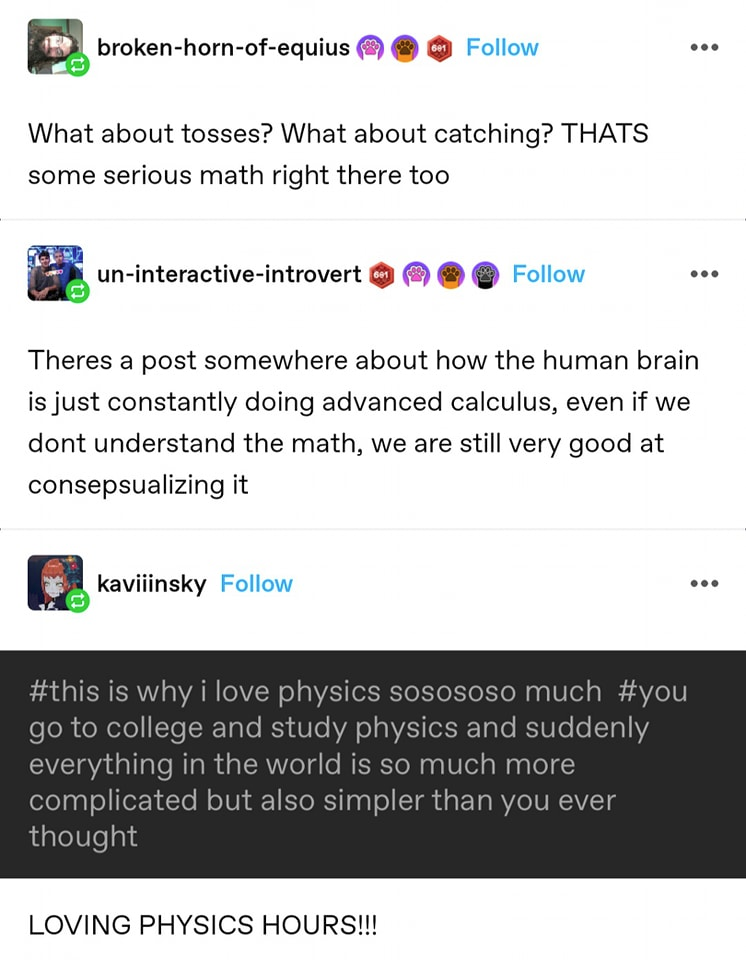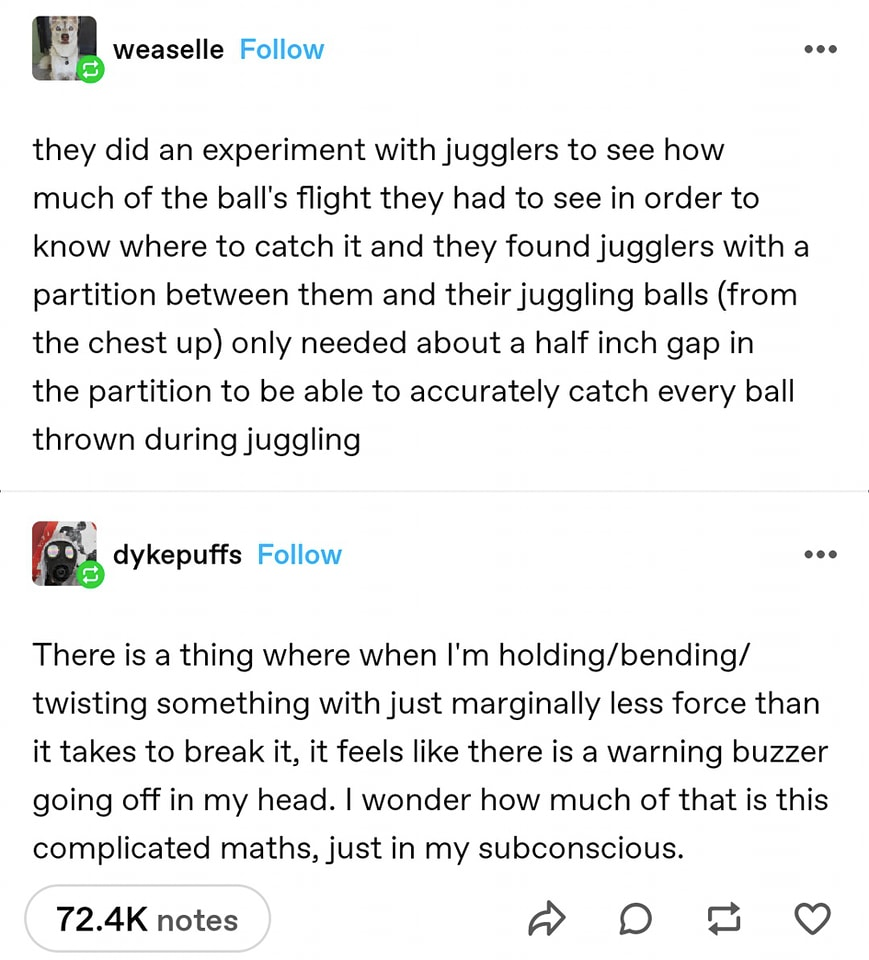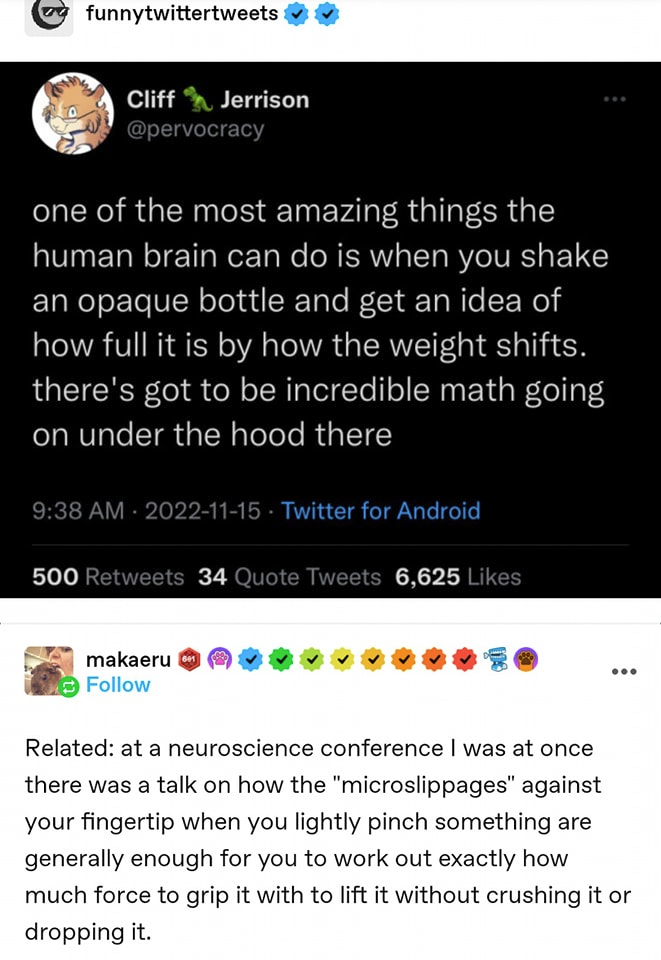Science Memes
Welcome to c/science_memes @ Mander.xyz!
A place for majestic STEMLORD peacocking, as well as memes about the realities of working in a lab.

Rules
- Don't throw mud. Behave like an intellectual and remember the human.
- Keep it rooted (on topic).
- No spam.
- Infographics welcome, get schooled.
This is a science community. We use the Dawkins definition of meme.
Research Committee
Other Mander Communities
Science and Research
Biology and Life Sciences
- [email protected]
- [email protected]
- [email protected]
- [email protected]
- [email protected]
- [email protected]
- [email protected]
- [email protected]
- [email protected]
- [email protected]
- [email protected]
- [email protected]
- [email protected]
- [email protected]
- [email protected]
- [email protected]
- [email protected]
- [email protected]
- [email protected]
- [email protected]
- [email protected]
- [email protected]
- [email protected]
- [email protected]
- !reptiles and [email protected]
Physical Sciences
- [email protected]
- [email protected]
- [email protected]
- [email protected]
- [email protected]
- [email protected]
- [email protected]
- [email protected]
- [email protected]
Humanities and Social Sciences
Practical and Applied Sciences
- !exercise-and [email protected]
- [email protected]
- !self [email protected]
- [email protected]
- [email protected]
- [email protected]
Memes
Miscellaneous
I always imagine it more like neural networks. simply based on a lot of training and experience. As an example think of times when you step onto a non moving escalator. Your mind definitely knows its not moving but you still can't defeat the trained expectation of jerk.
Layered as well. Little bits process very specific things and simplify it for the beast.
Not advanced maths per se; neural networks are amazing! Fuzzy matching based on experience - taken to an incredible level. And, tuneable by internal simulation (imagination).
Most people who've been juggling for awhile don't need too much additional practice to be able to do at least a few blindfolded catches just because of how consistent your throws get after awhile.
The other thing that's interesting is how pattern recognition in flying things people aren't generally used to seeing develops. I used to play ultimate, and when people start learning how a frisbee flies they might be susceptible to chasing it down by following along the path of the disc rather than moving directly to where it's going to end up. This is sometimes called dogging the disc because (many) dogs do the same thing. But then you learn to "read" the disc and you can tell by the flight path and angle of the disc where it's going to land.
A lot of it is less math and more just approximations using old data, just fitting a complex statistical model neural nets suck ass at math
The second thing about microslippage is why I, even though I would say I'm transhumanist, would only ever go full cyborg if the robot parts had a sense of touch.
I don't wanna pet my dog and not only not feel their fur, but also end up crushing them with my super strength.
I think with the beginning stages of this kind of technology would work better with a removable option, for this reason. We are already getting able to make better human appendages, with super strength and dexterity, etc., but the touch is something that will probably be hard to implement for awhile.
Also the ability of mirror neurons to watch someone do a thing, then conceptualize and execute it with your body is extremely interesting.
I've seen some pretty awesome prosthetics that are controlled the same way you would use your limbs before they were lost by connecting to nerves; but they still don't feel anything. At least, not in the sense that the appendage itself is sending signals to your brain for it. There is still phantom sense/pain. You can get a false sense of touch in VR, too.
Agreed, until prosthetics can achieve full parity of both function and sensation then they are only good as replacements for parts that are already missing. No sane person is swapping their hand for one that lacks a sense of touch just as good or better than what they have already, even if it's mechanically superior. In such a scenario that mechanical superiority is desired they would opt for an augmentation over a prosthetic.
I'd take a pettin' hand and a crushin' hand.
I was always amazed at how we can catch objects in flight.
Compared to how long it takes me to calculate projectile momentum in Physics 1
Or tiny birds that can expertly navigate wind currents with an almond sized brain using real-time force feedback. The computational power at their disposal is very well optimized for what they do.
Hummingbirds are fucking incredible. They can literally hover, fly backwards, fly inverted, fly silently, or flap their wings loud enough to generate sound waves as a mating ritual. They're like miniature f-18s dog fighting constantly.
microslippages: some of us just call it what it is ... masturbation
A lot of it is the difference between learning practically and learning theoretically. You don't have to understand the underlying mechanics in practice to know how to keep getting the same result. Your brain doesn't have to be doing any math, it just has to have shaken a bottle enough times to have a good comparative basis formed.
Learning to calculate the current remaining volume in a container when observing someone else shake it.... that would use all that theoretical knowledge and math.
It's like knowing how hard you have to throw an egg at a wall for it to break instead of bounce off. You do it 100 times, you just get a good feel for it. Doing all the math, and then trying to learn it practically is barely gonna affect how quickly you learn it in practice. But if you wanted to make a robot that throws it exactly hard enough without wasting any energy, practical knowledge will have almost no value, and theory and math will be incredibly valuable.
This is coming from someone who does indeed have the whole "passive trajectory analysis of every moving object around me" thing. I can't do crowds or drive at busy times. But, for moving through a minor crowd while reading a book, or pulling into a tight parking space while other cars are moving around near me, it's very helpful. I have good spatial awareness in general, like parking in my garage with only an inch of clearance on the far side of my car has never been an issue in 14 years so far. Or when doing it with someone else's borrowed car every now and then too. When I shrug off the difficulty of doing something like that, people seem to be amazed. Otherwise, I would have assumed it was normal, feels normal to me.


